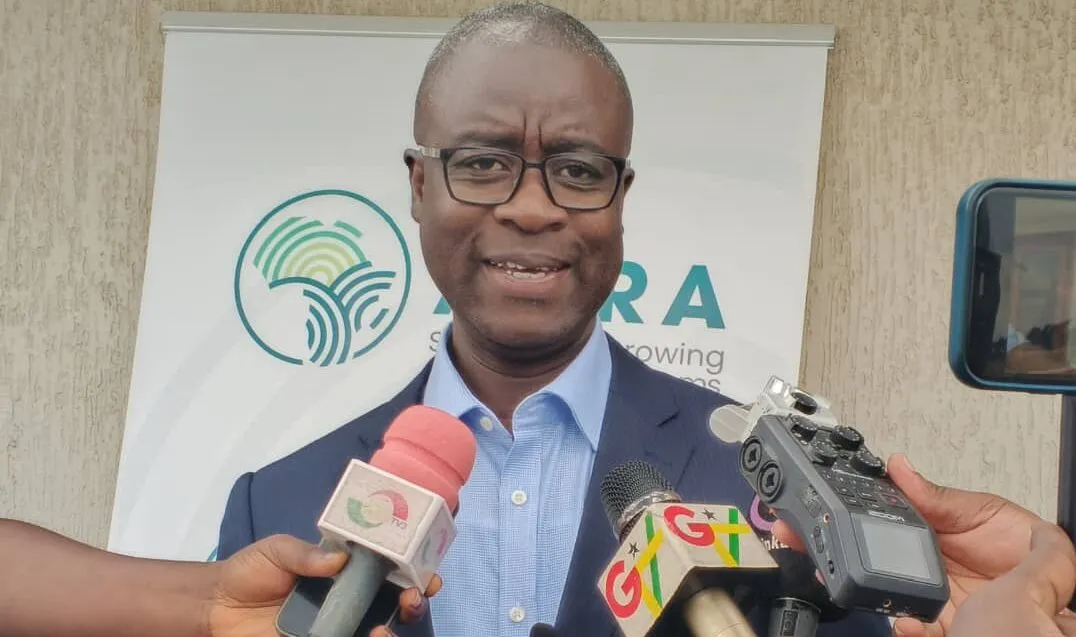By Gloria Anderson,Seli Baisie
Copyright gbcghanaonline

By Gloria Anderson and Alberta Asanewa Dwirah
The Alliance for a Green Revolution in Africa (AGRA) has begun validating its Climate Vulnerability and Risk Mapping Tool in Ghana as part of efforts to strengthen climate adaptation and resilience in the agricultural sector.
Speaking at a two-day Policy and Community Engagement Workshop on Climate Vulnerability and Resilience in Accra, the Member of Parliament for the Wa East Constituency commended AGRA for championing evidence-based solutions to address the growing threats of climate change to agriculture.
He described climate change as a “real and pressing threat” affecting farmers across Africa, noting that Ghana, like many countries on the continent, continues to experience erratic rainfall patterns, soaring temperatures, and prolonged droughts that disrupt agricultural planning.
“It has become increasingly difficult to predict when the rains will come, when the planting season should begin, or even the right time to apply fertilisers. Some crops like cassava and yam are now vulnerable to flooding, leaving farmers helpless,” he lamented.
The MP praised AGRA for sponsoring a comprehensive study on climate vulnerability profiling in collaboration with Mathematica and EDI Global, describing it as a “revolutionary step” towards developing science-driven agricultural policies.
“The use of high-resolution vulnerability maps is a game-changer. These maps help identify specific locations and types of vulnerabilities. When such information is communicated clearly to farmers, it empowers them to make informed decisions and plan better,” he emphasised.
He further urged the media to serve as a bridge between research institutions and local farmers by communicating findings in accessible ways that enhance community-level adaptation.
Dr Jeremiah Rogita, AGRA’s Soil Health and Climate Specialist, said the tool is the result of nearly a year of collaborative research with Mathematica and EDI Global, funded by the Bill & Melinda Gates Foundation.
“The Climate Vulnerability and Risk Mapping Assessment is a collaborative effort we’ve undertaken over the past eight to ten months. The project, generously funded by the Bill & Melinda Gates Foundation, aims to guide investment and policy decisions through comprehensive climate risk analysis and mapping,” Dr Rogita explained.
The initiative is currently being implemented in five African countries, Ghana, Kenya, Tanzania, Zambia, and Uganda, with similar studies completed in Burkina Faso and Ethiopia. According to Dr Rogita, the validation process in Ghana will focus on maize and cassava, two of the country’s key staple crops.
“Africa is one of the regions most affected by climate change. Tools like this are essential to help countries adapt and build resilience through evidence-based planning,” he said.
The workshop, held under the theme “Strengthening Climate Adaptation through Evidence-Based Policy and Community Action,” brought together government officials from the agriculture, environment, and planning sectors; farmer organisations; technical experts; youth and women’s groups; NGOs; the private sector; and the media.
AGRA’s initiative aligns with its Strategy 3.0 and the broader continental climate adaptation agenda, ensuring that scientific evidence from climate risk and vulnerability analyses directly informs policy reforms, community planning, and local adaptation actions.
Special attention was given to ensuring the meaningful participation of youth and women, both as contributors and beneficiaries of climate-smart policies.
Through this validation exercise, AGRA aims to empower local farmers, extension officers, and policymakers with reliable data to make informed decisions, marking a crucial step toward building resilient and sustainable agricultural systems across Africa.